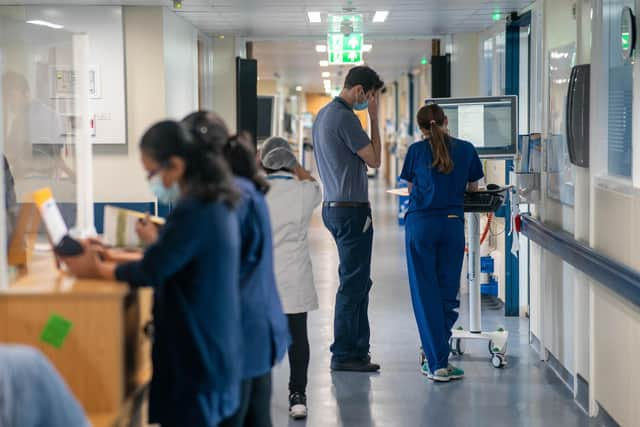One in 20 people in Bassetlaw living with poor health
and live on Freeview channel 276
A new analysis by the Institute for Public Policy Research found areas with higher sickness rates are associated with lower productivity, high poverty and more economic inactivity.
It proposes new health and prosperity improvement (HAPI) zones, that “would serve as an innovative response to growing poverty and ill-health”.
Advertisement
Hide AdAdvertisement
Hide AdThe figures show 5.9 per cent of people in Bassetlaw reported bad or very bad health as of the 2021 Census.


Meanwhile, 23.2 per cent of all 71,285 adults in the workforce in the area were economically inactive during the same period.
This meant Bassetlaw was ranked joint 199th for health and economic activity out of 330 local authorities, along with Southend.
The IPPR said its analysis shows people living in the most deprived areas are nearly one and a half times more likely to experience economic inactivity and are twice as likely to be in poor health than those in the least deprived authorities.
Advertisement
Hide AdAdvertisement
Hide AdPeople living in these areas are also more likely to experience worse levels of productivity, material deprivation, child poverty, unemployment, and household income.
Professor Donna Hall CBE, IPPR commissioner, said: “People working within local government and health services are trapped by a lack of resources, support and agency to serve their local population. People feel unheard and their health is suffering.
“The new HAPI zones would serve as an innovative response to growing poverty and ill-health, put power into the hands of local leaders and ignite local ownership over the future of public health.”
Separate figures show the healthy life expectancy in all of Nottinghamshire was 62.4 years for males and 60 for females in 2018 to 2020.
Advertisement
Hide AdAdvertisement
Hide AdEfua Poku-Amanfo, research fellow at the IPPR, said: “The case for government spending and action on health is clear. It’s not just the morally right thing to do, it’s the economically sensible thing to do.”
A government spokesperson said: “We are committed to increasing healthy life expectancy by five years by 2035 and narrowing the gap between local areas by 2030 including by investing up to £14.1 billion to improve health services and help people live longer, healthier lives.”